While we wait for the second hearing to begin, you can catch up on the first hearing on the committee's YouTube page:
House Democrats hold climate change hearings
Watch the first hearing in its entirety here
West Virginia businesses fear legislative action to halt climate change could end recent energy boom
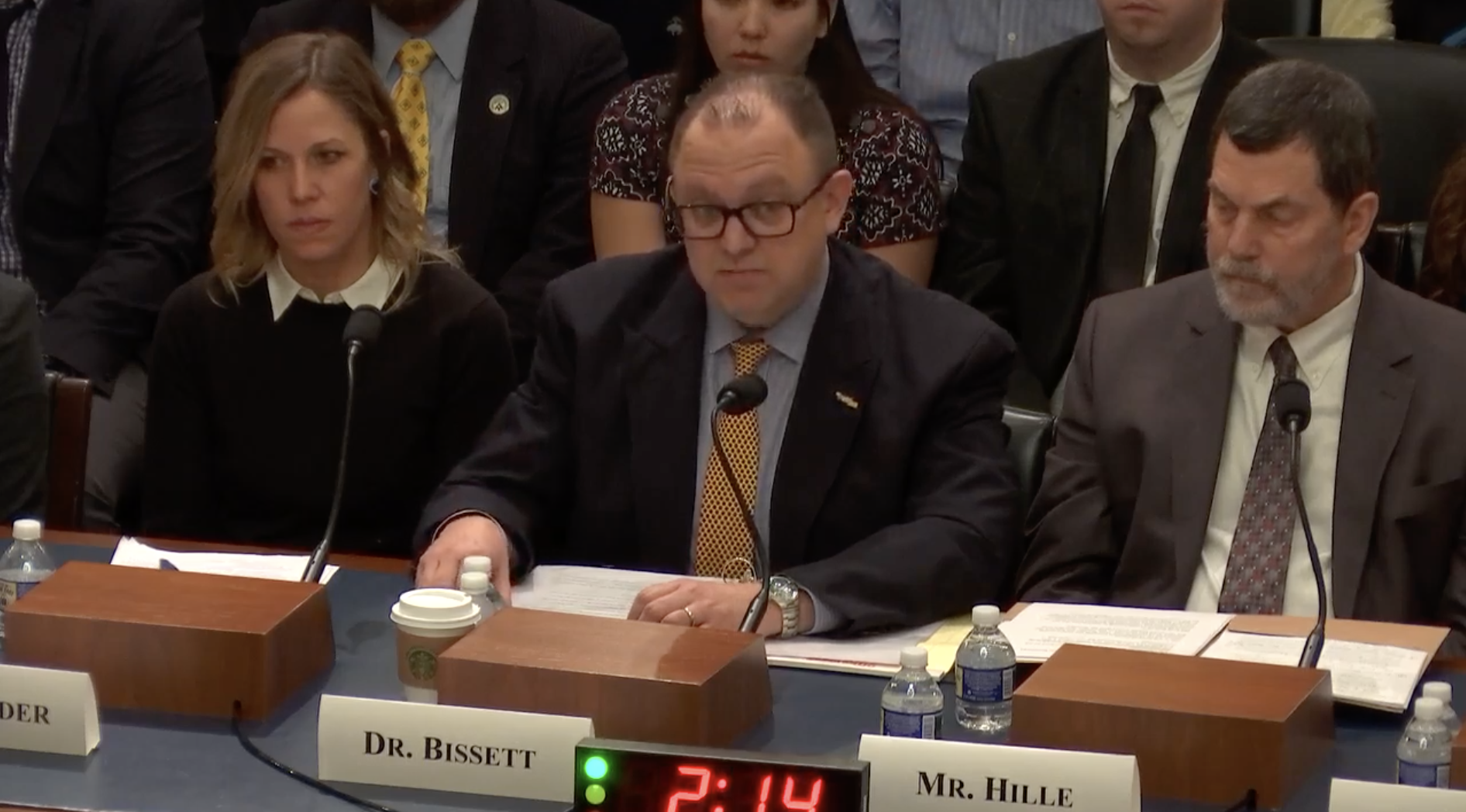
Up next came Dr. Bill Bisset, a minority witness who spoke of the needs of more than 500 businesses and 30,000 employees in West Virginia.
Bisset, who as president and CEO of the Huntington Regional Chamber of Commerce, appeared before the committee bringing "good news from West Virginia."
In the past two years, Bisset explained, "We have gone from catastrophic losses and declining state revenues to job growth and a state that is now stable and growing financially," which he attributes to a "rebirth in coal and natural gas production.”
Bisset urged the committee to continue to support "all forms of energy production," and said that businesses in West Virginia are worried about the boom being "fragile" -- any action due to climate change fears could damage "our economy far greater than any other state."
"I believe that we can produce coal and natural gas while also creating new economic opportunities for our citizens," Bisset said. "We simply do not have to sacrifice one industry to create new opportunities."
She builds rope courses to escape the fossil fuel industry's boom-and-bust cycles
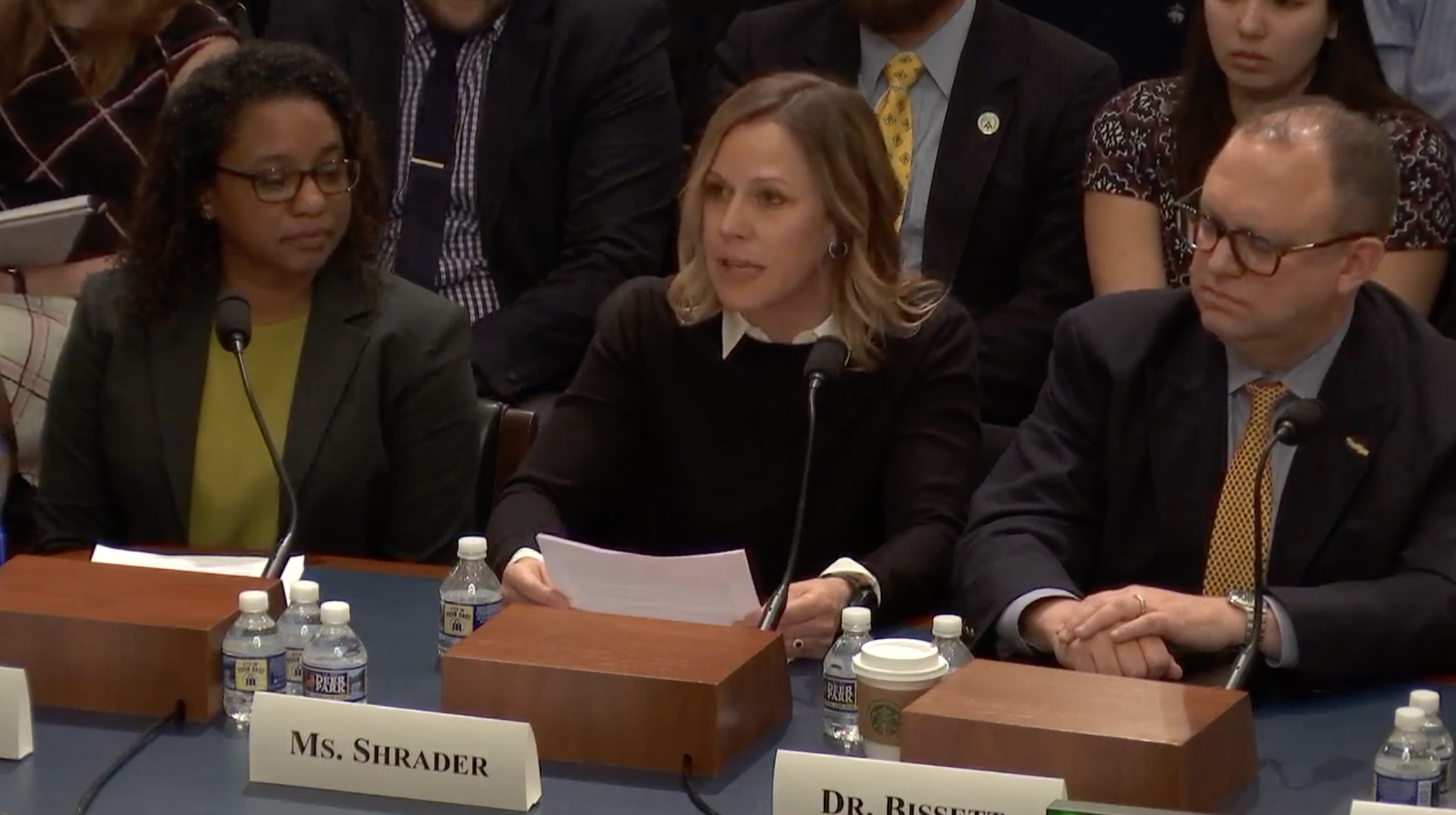
Talk about being on the ropes.
Sarah Shrader, the owner of a Colorado company that designs outdoor adventure courses, testified that the area she moved to in 2004 has a "volatile economic history driven largely by fossil fuel oil, gas and uranium."
The area does well and it has provided jobs and prosperity, but it frequently dips into the "inevitable bust" when commodity prices fall or policies change, she explained.
That boom-and-bust takes a toll and "creates a sense of hopelessness."
As a result, Shrader started a new company in her basement -- Bonsai Design -- which provides 50 jobs in the area, helping to diversify the economy.
Shrader suggests rural communities are realizing that the outdoor recreation industry is a better alternative, and it contributes $300 million annually to the state of Colorado.
How the rising costs of energy force poorer families to make unimaginable choices
From CNN's Jen Christensen
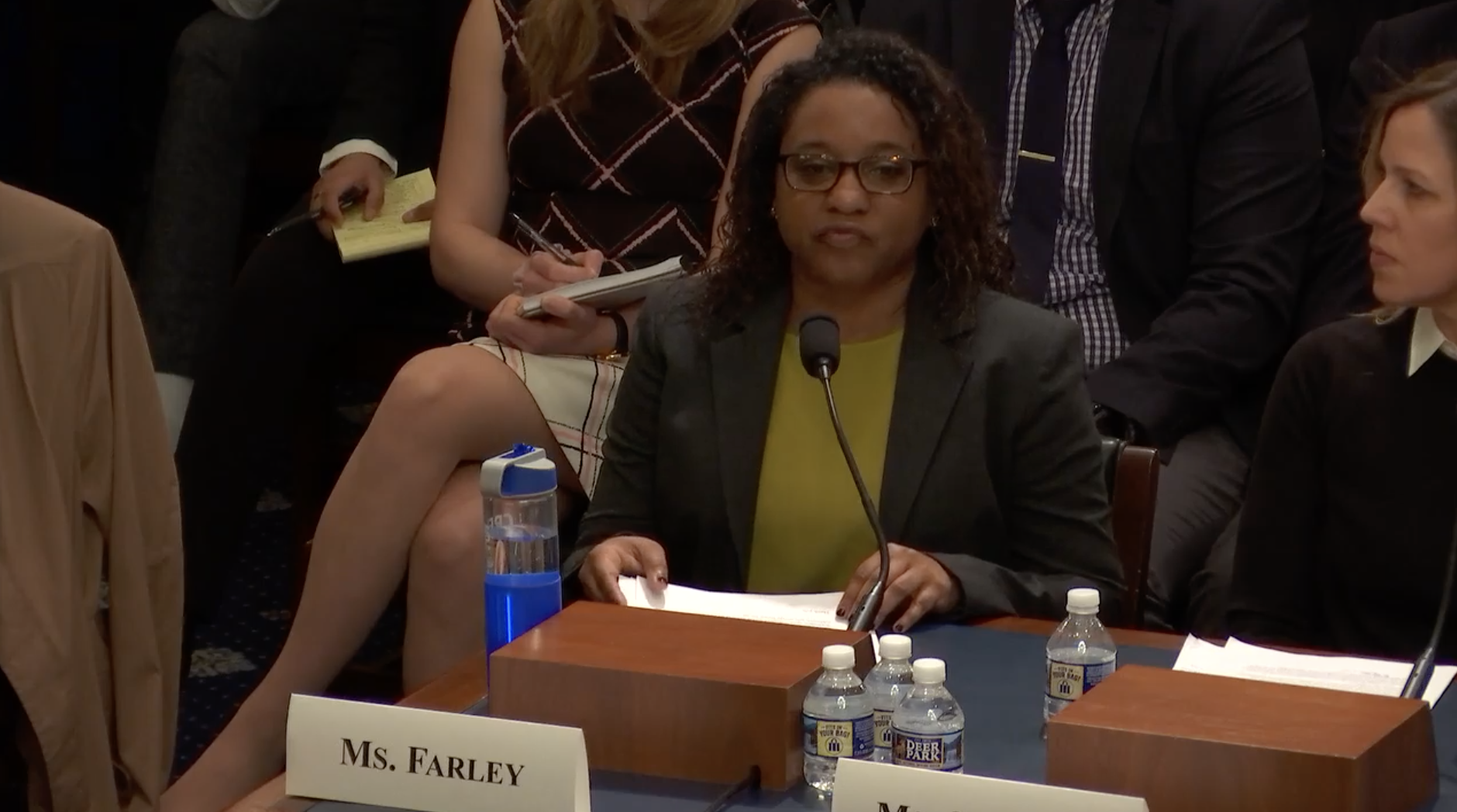
The first witness of the day's hearings, Ms. Chandra Farley, who is the director at Just Energy's Partnership for Southern Equity in Atlanta, Georgia, talked about how the poor and people of color, particularly in the South, have far too many barriers to affordable energy and warned that the "disenfranchised are not represented in energy regulatory and distribution policy."
She urged the committee, as they create policy on climate change and clean energy, to keep these folks in in mind.
The rising cost of energy and its percentage of household income can be crippling for working families, Farley explained, especially those with limited funding for weatherization, as barriers to energy upgrades leave families with the unimaginable choice: "Do you pay the light bill and go without your medicine, or do you buy groceries and heat your home?"
House Republican opens hearing by railing against Green New Deal, a "socialist fairytale"
From CNN's Jen Christensen
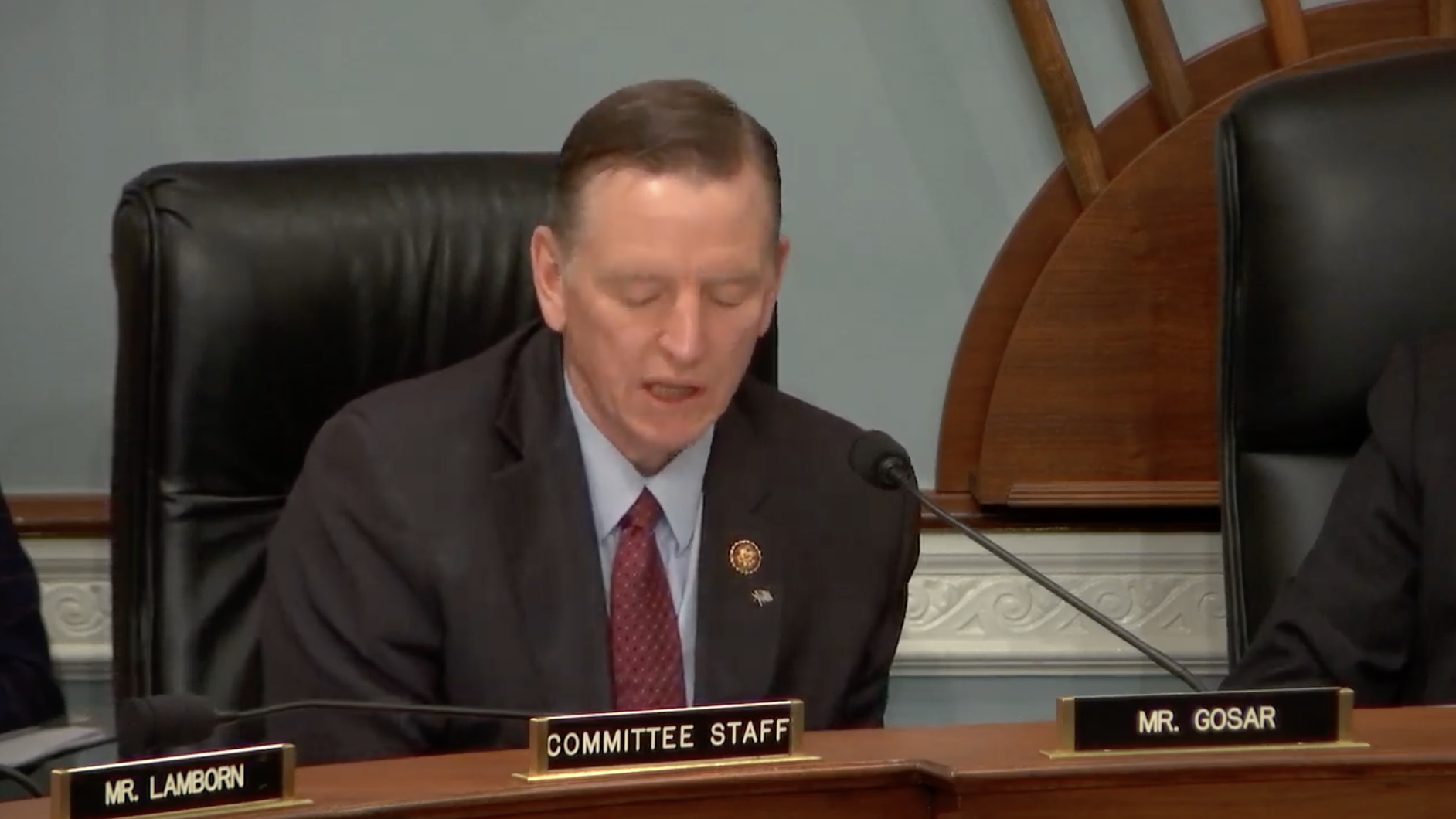
Arizona Rep. Paul Gosar, the minority lead on the subcommittee, opened his statement with a screed against the Green New Deal -- which isn't a topic of today's hearing.
Gosar said that retreating from fossil fuel in the way the Green New Deal lays out is "a socialist fairytale" and said you couldn't replace six-figure energy jobs with a "federal take over of the country."
"Conventional energy sources have played an overwhelmingly positive role" in the US, he said, adding that "innovation has reduced emissions as productions have increased," and "the void left by America" should we retreat would be filled by others.
The Democratic chair Alan Lowenthal joked, "So I take it you won't be a cosponsor?" The Republican replied, "You can take that to the bank."
House Democrat: US must transition away from fossil fuels if we want to leave a recognizable world to our children
From CNN's Jen Christensen
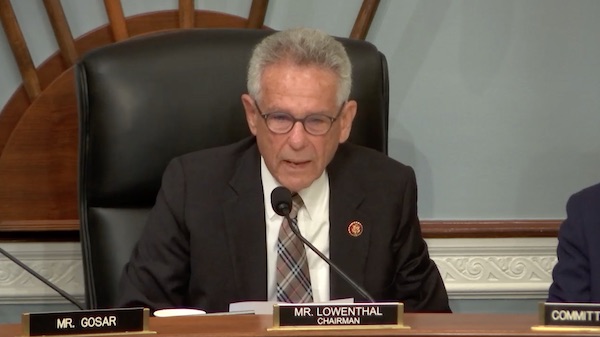
Rep. Alan Lowenthal (D-Calif.), the chairman of the subcommittee on energy and mineral resources, opened today's hearing with a call to work together -- for
"There must be changes in how we use and produce energy in this country and there is no doubt that a transition away from fossil fuels to zero emission energy sources is essential if we are to leave a recognizable world for our children and great grandchildren," he said, laying out the urgency with which House Democrats view the issue. "They are usually not at the table but these are issues they have to be continued at the table from now on."
House Natural Resources Committee holds hearings on climate change
The House Natural Resources Committee is holding two hearings today addressing the impact of climate change.
- The first, which began at 10 a.m. ET, is called "Climate Change: Preparing for the Energy Transition."
- The second, scheduled for 2 p.m. ET, will examine "The Impact of Climate Change on Tribal Communities."
We'll bring you some highlights from the two hearings here.